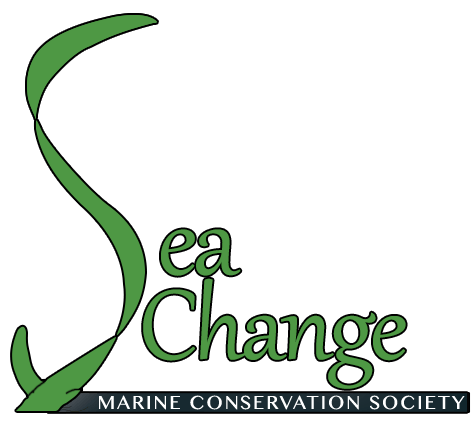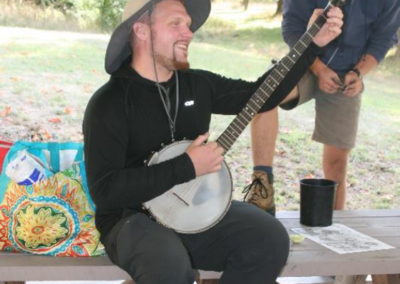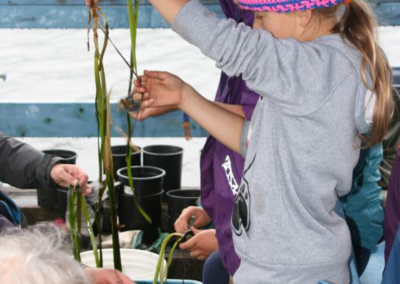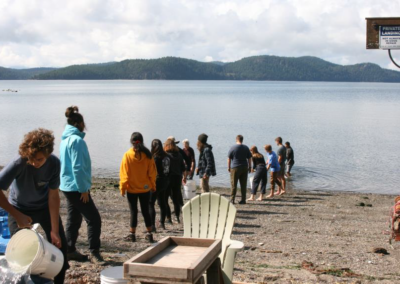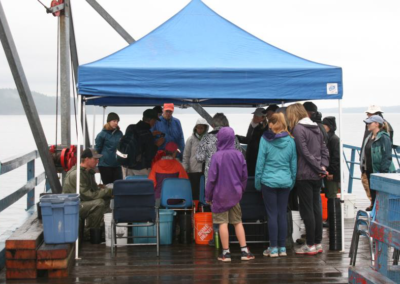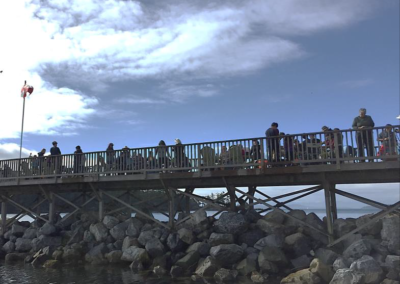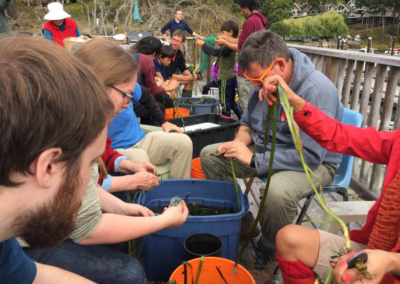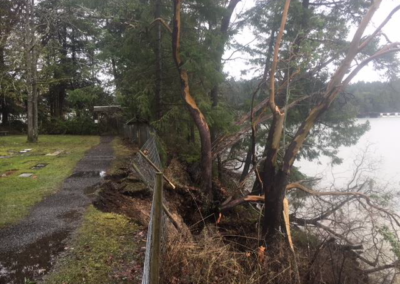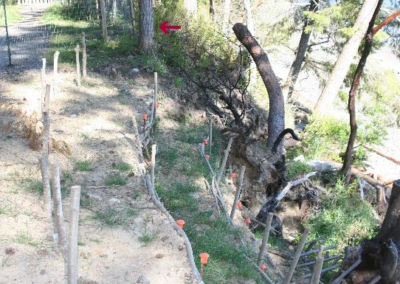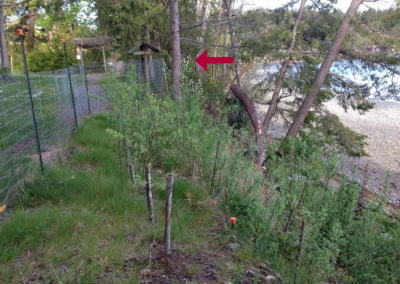GULF ISLANDS
Restoration work in the Gulf Island Region can best be described by the word ‘enthusiasm’. Each restoration brings out a crowd of volunteers of all ages and from all walks of life who are grateful for the opportunity to learn and to assist with enhancing the nearshore environments in their home waters. The Gulf Island Region stretches from Saturna Island in the south to Denman Island and Hornby Island in the north, and as far east as Lasqueti Island. It encompasses the overlapping traditional, ceded or unceded territories of at least 19 First Nations and many other small coastal communities.
Almost all the riparian foreshore is privately owned and a large percentage has been altered or developed. These characteristics give the region its own special challenges in terms of communication, securing support from everyone with an interest in conservation, bringing people together, and traveling by water to restoration sites. Restoration sites tend to be small bays and estuaries and so eelgrass transplants are usually fairly limited in size.

In the Gulf Island Region, since the project began, SeaChange, with the assistance of volunteers from local communities, has carried out 7 eelgrass tranplants adding over 5000 eelgrass shoots, 3 marine debris removal projects removing over 6.5 tons of debris, and 2 riparian restorations planting native trees and shrubs.
A mooring system that prevents scouring within eelgrass habitat has been installed in Clam Bay on Thetis Island and will be in Ford Cove on Hornby Island. Monitoring of all sites is carried out every six months. Educational ‘Anchor Out of Eelgrass’ signage, made possible by funding from the Pacific Salmon Foundation and Boating BC, can be seen at marinas, government docks and beach accesses throughout the region. Additional restorations and debris clean–ups are planned in the final two years of the project (to the spring of 2022).
Please contact Ann Eriksson at ann.eriksson4@gmail.com for more information, or if you would like to volunteer at our next restoration event
SEEC teacher Martin Avenich entertains student volunteers during the Saturna Beach eelgrass transplant.
Saturna Ecological Education Centre (SEEC) students cooperate to transfer seawater to eelgrass sorting bins.
“I enjoyed yesterday’s eelgrass session immensely.It was educational, a clinic in organization, fun and a contribution to helping our ecosystems.” (Quote from Pender Island volunteer).
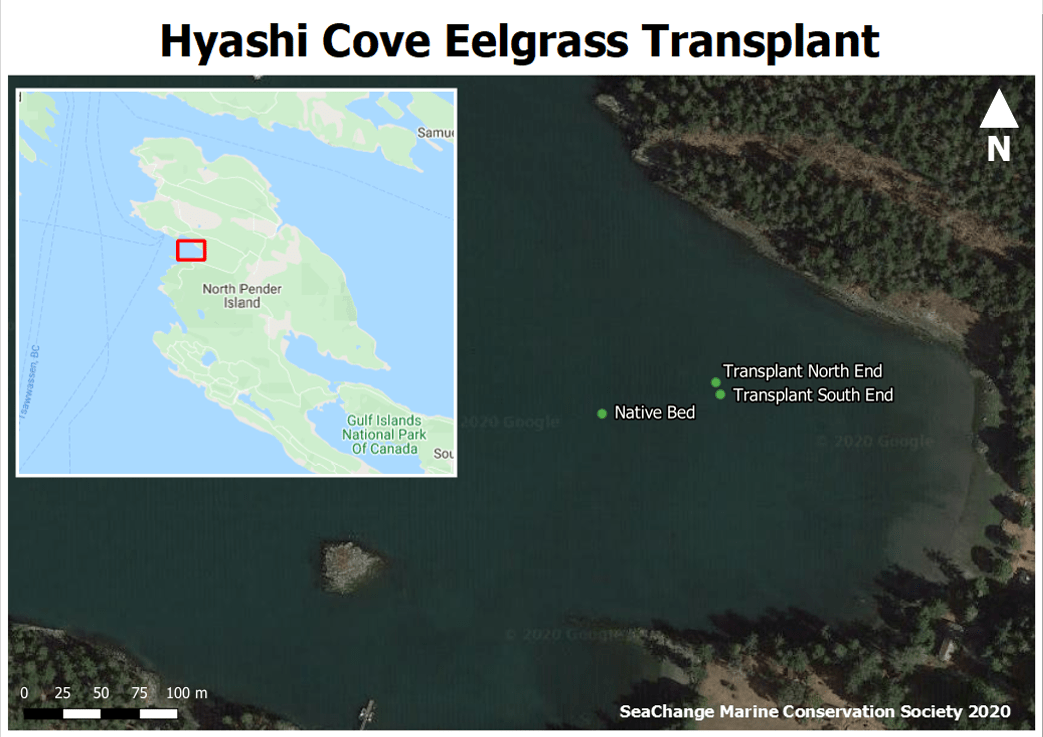
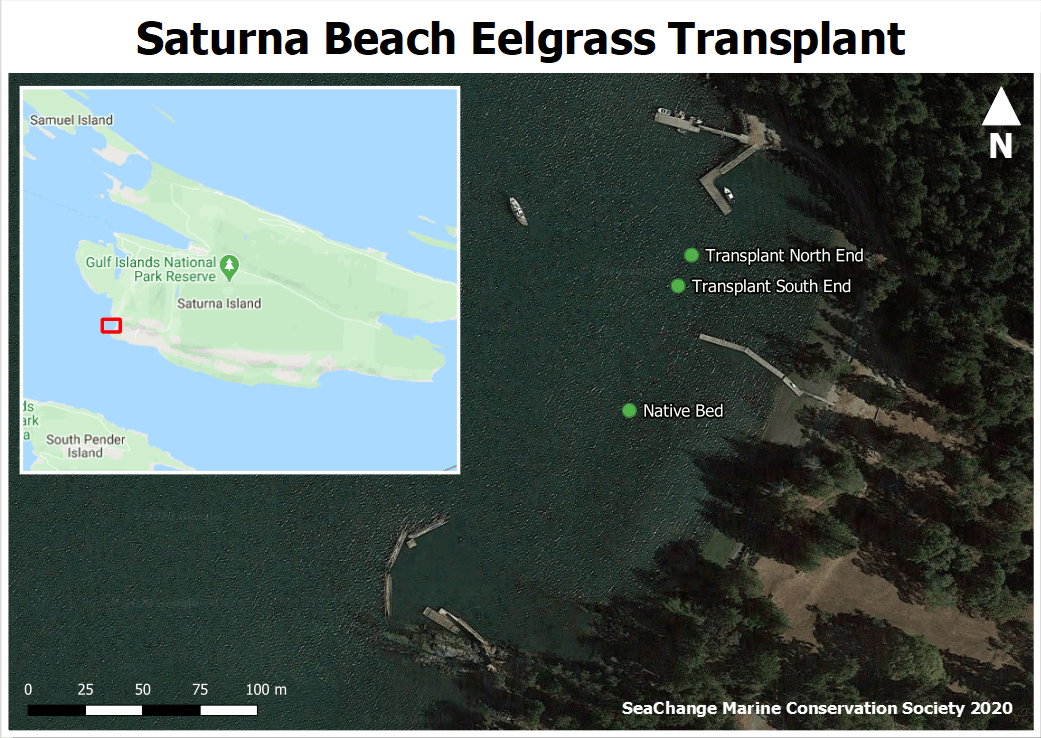
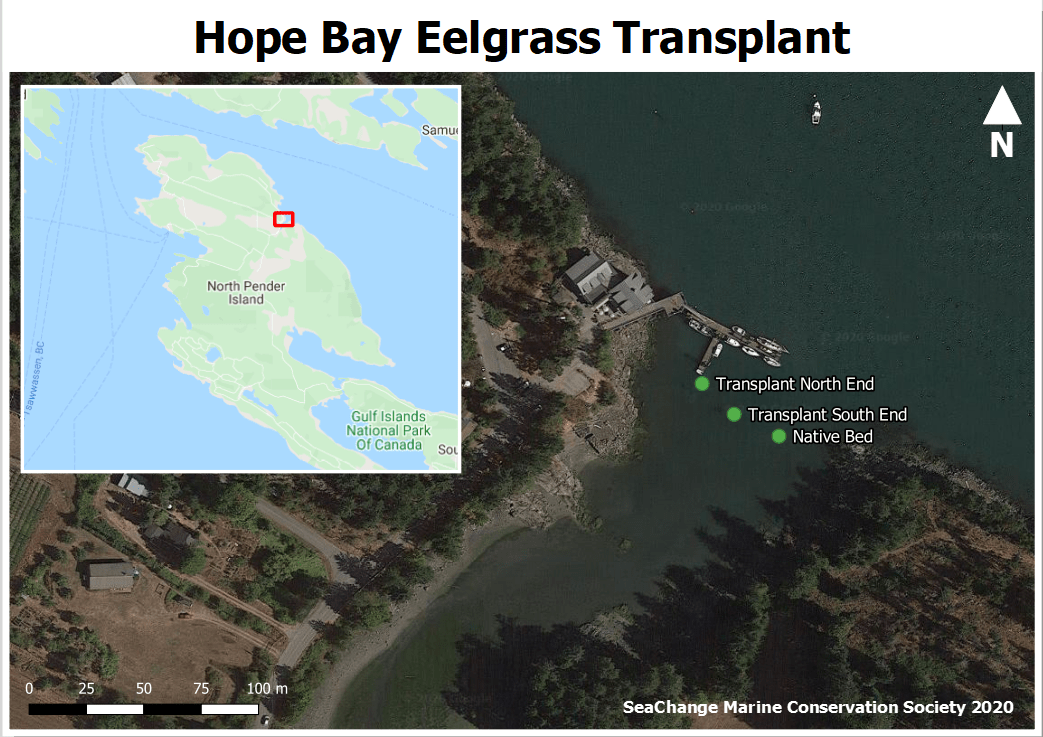
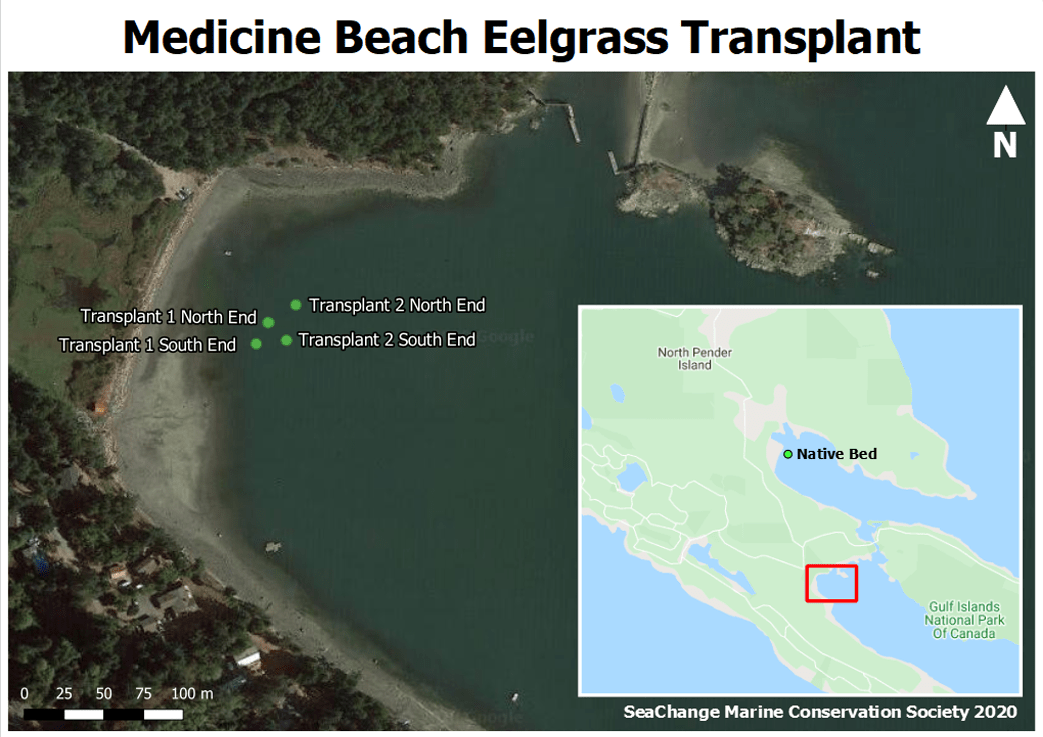
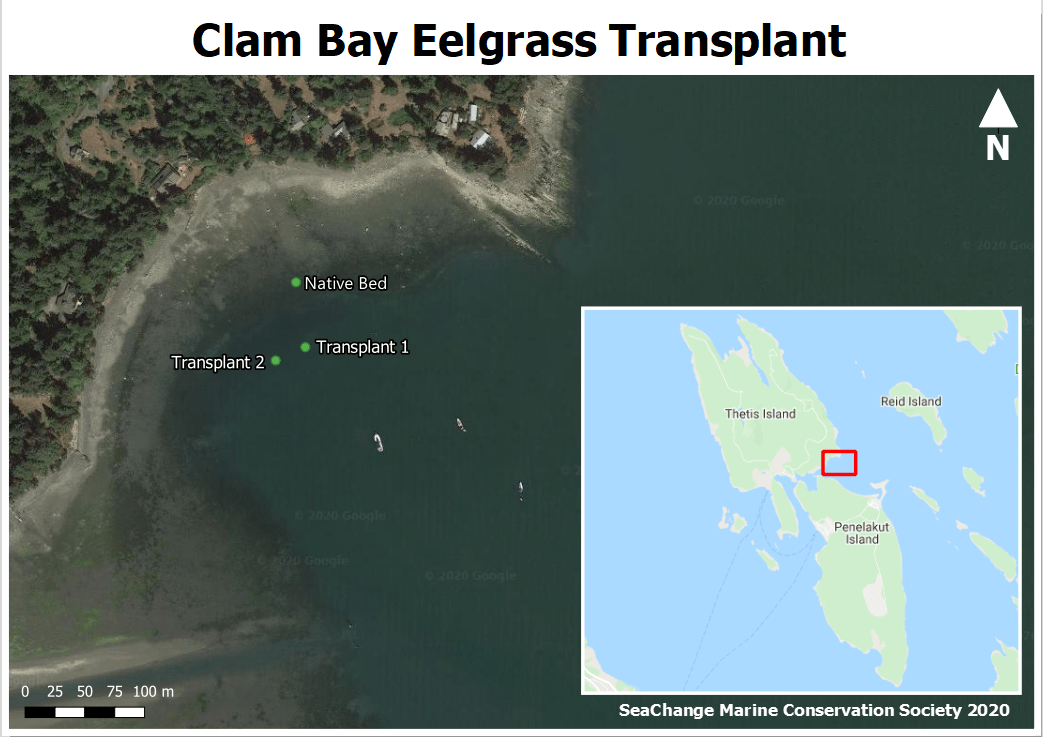
“We aren’t only helping the meadowsof eelgrass, but also the marine animals who rely on it, for example, smallforage fish, such as sandlance and surf smelts which are atthe very bottom of the marine food chain. By improving this habitat, eelgrass is supporting the health of larger animals such as our beloved Southern Resident Killer Whales.” (Quote from student volunteer from the Saturna Ecological Education Centre).
